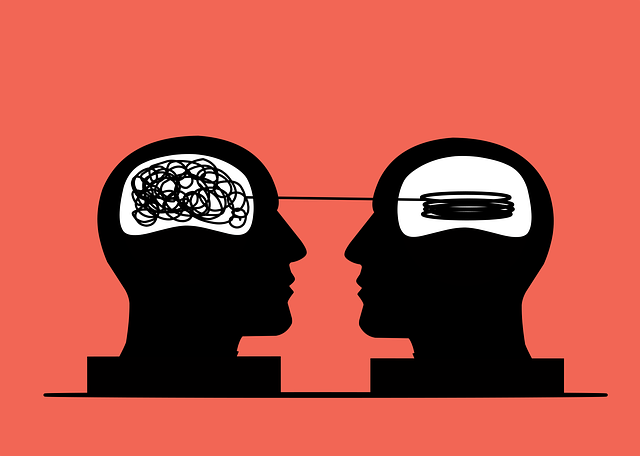Media portrayal of mental health greatly influences public perception, either reinforcing stigma or fostering empathy. Positive depictions, like those showcasing Superior Crisis Counseling Therapy (SCCT), can normalize help-seeking behaviors and promote mental health prioritization. Negative or inaccurate media may deter access to essential services. To bridge this gap, Public Awareness Campaigns centered on accurate representation, developed in collaboration with therapists and mental health advocates, are crucial. SCCT's evidence-based techniques encourage nuanced understanding of conditions like depression and burnout while promoting recovery and self-efficacy. Effective media representation shapes societal perceptions, creating a more supportive environment for those facing mental health challenges.
In today’s media landscape, representation of mental illness is paramount for fostering understanding and reducing stigma. This article delves into the profound impact of media portrayal on mental health perception. We explore how Superior Crisis Counseling Therapy (SCCT) challenges stereotypes by providing a nuanced approach to crisis interventions. Through effective strategies, we discuss ways to promote accurate and empathetic depictions, encouraging positive change towards more realistic media portrayals of mental illness.
- Understanding the Impact of Media Representation on Mental Health
- The Role of Superior Crisis Counseling Therapy in Challenging Stereotypes
- Effective Strategies for Promoting Accurate and Empathetic Portrayals of Mental Illness
- Fostering Positive Change: Implementing Solutions for More Realistic Media Depictions
Understanding the Impact of Media Representation on Mental Health

Media representation plays a pivotal role in shaping public understanding and perceptions about mental health issues. The way mental illness is depicted in films, television shows, and news media can significantly influence societal attitudes, often perpetuating stereotypes or, conversely, fostering empathy and compassion. This representation has profound effects on individuals struggling with their mental well-being, as it can either reinforce feelings of stigma or inspire hope for support and recovery.
For instance, positive portrayals of superior crisis counseling therapy in media can normalize the idea of seeking professional help, encouraging viewers to prioritize their mental health. Conversely, negative or inaccurate representations may lead to misinformed decisions and hinder individuals from accessing the necessary services, such as Mental Health Education Programs Design and Stress Reduction Methods. Public Awareness Campaigns Development centered around accurate representation can bridge this gap, offering a platform to educate audiences and dispel myths surrounding mental illness.
The Role of Superior Crisis Counseling Therapy in Challenging Stereotypes

The representation of mental illness in media plays a pivotal role in shaping public perception and understanding. Often, media portrayals perpetuate stereotypes that can cause further harm to individuals already struggling with their mental health. This is where Superior Crisis Counseling Therapy (SCCT) steps in as a powerful tool to challenge these negative narratives. SCCT offers a unique approach by focusing on the individual’s ability to navigate crises and build resilience.
By employing evidence-based techniques, SCCT helps media creators and consumers alike to move beyond simplistic and often inaccurate representations of mental illness. It encourages a more nuanced understanding of complex conditions, such as depression or burnout (a prevalent issue among healthcare providers, as discussed in Burnout Prevention Strategies for Healthcare Providers). Moreover, this therapy promotes the idea that recovery is possible and empowers individuals to take control of their mental health journey, boosting confidence and fostering a sense of self-efficacy.
Effective Strategies for Promoting Accurate and Empathetic Portrayals of Mental Illness

To promote accurate and empathetic representations of mental illness in media, industry professionals should prioritize consultation with experts, including therapists and mental health advocates. Incorporating real-life perspectives ensures stories are nuanced and avoid harmful stereotypes. Superior Crisis Counseling Therapy techniques can guide creators in depicting various conditions while showcasing recovery journeys that reflect the diversity of experiences. By doing so, media can foster understanding and reduce stigma, encouraging viewers to approach mental health issues with compassion.
Additionally, nurturing positive thinking and incorporating strategies for burnout prevention are vital. Encouraging characters to lean on mind over matter principles can humanize their struggles while conveying resilience. This approach not only enriches storytelling but also empowers audiences by presenting hope and realistic coping mechanisms. Effective media representation goes beyond entertainment; it influences societal perceptions, shaping a more supportive environment for those grappling with mental illness.
Fostering Positive Change: Implementing Solutions for More Realistic Media Depictions

The media plays a significant role in shaping societal perceptions about mental health. Currently, many depictions fall short by perpetuating stereotypes and offering an unrealistic view of what it’s like to live with a mental illness. However, this can be challenged through proactive solutions that promote positive change. By prioritizing authenticity and sensitivity, media platforms can facilitate a deeper understanding of complex mental health issues.
Implementing more realistic portrayals in films, television shows, and news coverage is crucial. This involves collaborating with mental health professionals like those offering Superior Crisis Counseling Therapy to ensure accuracy. Additionally, integrating Mental Wellness Journaling Exercise Guidance or exploring Trauma Support Services within narratives can provide valuable insights. Encouraging self-care practices through media content can also foster a culture of support and reduce the stigma associated with seeking help. These strategies collectively contribute to a more nuanced and empathetic representation of mental illness in the media landscape.
In light of the above discussions, it’s clear that media plays a pivotal role in shaping public perception about mental illness. By employing strategies like Superior Crisis Counseling Therapy and fostering accurate, empathetic portrayals, we can challenge stereotypes and promote understanding. Ultimately, more realistic media depictions can lead to reduced stigma, improved access to care, and positive change for individuals facing mental health challenges.














